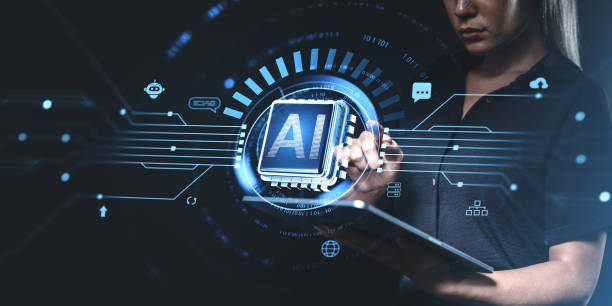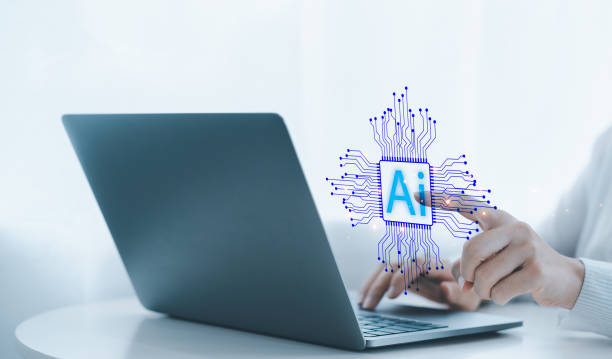An Introduction to the Fundamental Transformations of AI’s Job Future
![]()
Today’s world stands on the brink of an unprecedented digital transformation, and at the heart of this change, Artificial Intelligence (#AI) plays a pivotal role.
The increasing integration of AI into various aspects of life, including industry, services, and even homes, has significantly impacted the future of AI jobs and the global labor market outlook.
This technology not only affects existing jobs but also creates entirely new employment opportunities.
In this explanatory section, we explore how AI, with its capabilities in big data analysis, machine learning, and process automation, is redefining the human role in the workplace.
The changes brought about by AI are no longer a distant prospect but a rapidly evolving reality that requires a deep understanding of its nature for adaptation and exploitation of opportunities.
This article aims to explore the various dimensions of AI’s impact on employment and provide a comprehensive perspective on the upcoming transformations.
The goal is for readers to be better prepared to step towards this new career horizon and benefit from its countless potentials.
Does your current website convert visitors into customers, or does it drive them away? Solve this problem forever with professional corporate website design by Rasawweb!
✅ Build powerful credibility and branding
✅ Attract target customers and increase sales
⚡ Get a free consultation now!
New and Emerging Opportunities in the AI Job Landscape
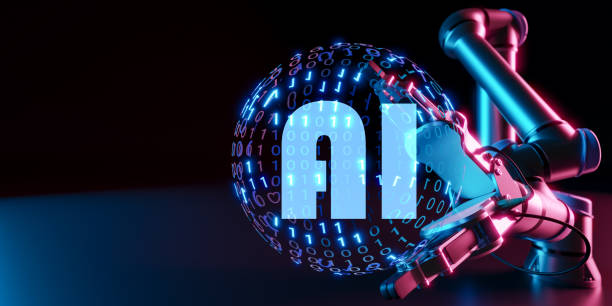
As AI permeates various industries, it also creates new and exciting job opportunities.
This educational section examines jobs that are directly within the AI domain or have gained increased importance due to it.
#DataScientists, #MachineLearningEngineers, #NaturalLanguageProcessingSpecialists, and #AIEthicsExperts are just a few examples of these professions that have seen significant growth in recent years.
The demand for these specialties is increasing due to companies’ need to develop, implement, and manage AI systems.
For example, a Machine Learning Engineer is responsible for designing and building models that allow AI to learn from data and make predictions.
An AI ethics specialist works on ensuring the responsible and fair use of this technology.
These jobs not only require deep technical knowledge but also demand creativity and problem-solving abilities.
The future of AI jobs is literally creating professions that didn’t exist a decade ago, and this trend will continue.
To enter these fields, acquiring skills related to programming (such as Python), statistics, and advanced AI concepts is essential.
Universities and educational institutions worldwide offer specialized programs to train the workforce needed for this arena, which can be a guide for interested individuals.
Challenges and Risks of AI’s Job Future
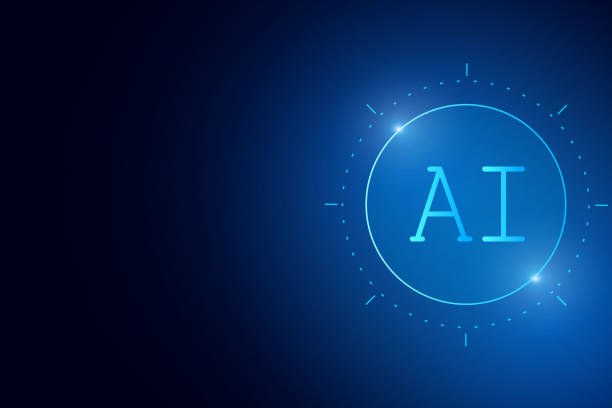
Despite countless opportunities, the widespread integration of AI into the labor market also brings challenges and concerns.
This analytical section examines these important aspects.
One of the main concerns is #JobDisplacement.
Repetitive and rule-based jobs, such as some administrative, manufacturing, and even service tasks, are at risk of automation.
Another concern relates to the skill gap; individuals without the necessary skills to adapt to AI’s job future may face unemployment or reduced income.
| Type of Challenge | Description | Potential Solution |
|---|---|---|
| Job Displacement | Automation of repetitive tasks by AI | Reskilling and acquiring new competencies |
| Skill Gap | Mismatch between existing skills and new demands | Continuous education and lifelong learning |
| Ethical and Privacy Issues | Irresponsible use of data and algorithmic decision-making | Development of legal and ethical frameworks |
The intriguing question is whether the pace of change will be faster than society’s ability to adapt? Will governments and organizations be able to provide the necessary infrastructure for reskilling and supporting the workforce? These questions require deep thought and strategic planning to prevent potential negative consequences and ensure a fair and inclusive transition to an AI-based labor market.
Skills Required for Adapting to AI’s Job Future
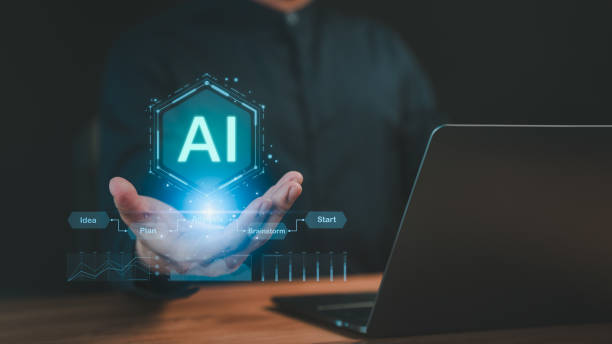
To succeed in AI’s job future, merely having a university degree is not enough.
In this guide section, we examine the skills essential for #adaptation and #advancement in a world transformed by AI.
These skills are broadly divided into two categories: technical skills and soft skills.
Technical skills include programming knowledge (such as Python and R), understanding deep learning and machine learning, data analysis, and data engineering.
These skills help individuals work with or develop AI systems.
On the other hand, soft skills such as #CriticalThinking, #Creativity, #ProblemSolving, #EmotionalIntelligence, and #Collaboration have gained increasing importance.
These skills allow humans to surpass AI or collaborate with it in tasks requiring judgment, complex human interaction, and innovation.
Lifelong learning and the ability to adapt to rapid technological changes are two key factors for survival and thriving in this field.
Individuals who equip themselves with these skills will not only be safe from automation but can also play an active role in shaping AI career paths.
Did you know that 94% of the first impression of a company is related to its website design?
Rasawweb, by offering professional corporate website design services, helps you create the best first impression.
✅ Create a professional and trustworthy image for your brand
✅ Easier attraction of potential customers and improved online presence
⚡ Get a free corporate website design consultation
The Role of Education in Shaping AI Career Paths
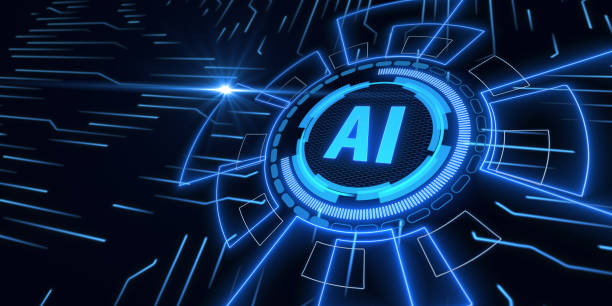
Educational systems worldwide must align themselves with the realities of AI’s job future.
This specialized section examines the importance of #CurriculumReview and #investment in education to prepare future generations.
Schools, universities, and higher education institutions have the responsibility to equip graduates with the necessary skills and knowledge to enter the AI-driven job market.
This includes teaching fundamental AI concepts, AI ethics, programming, and data analysis from younger ages.
Additionally, emphasis should be placed on developing soft skills such as critical thinking, problem-solving, and creativity, which are less susceptible to automation.
Higher education needs to offer more interdisciplinary courses that combine computer science, statistics, psychology, and humanities to train specialists with a more comprehensive perspective.
In addition to formal education, #Reskilling and #Upskilling programs for the current workforce are also crucial.
Governments and companies must invest in these programs to ensure that no segment of society is left behind by the transformations.
The future belongs to those who are constantly learning and adapting to new technologies.
This is a major challenge but also an unparalleled opportunity to reconstruct the workforce and increase productivity.
Leading Industries in Attracting AI Talent
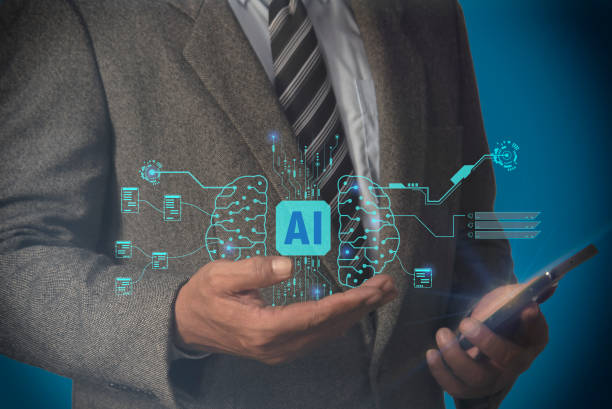
AI is rapidly penetrating all industries, but some sectors, due to the nature of their work and high productivity potential, are pioneers in #AITalentAttraction.
This news section introduces these key industries.
The #Technology industry is undoubtedly at the forefront, with major companies like Google, Microsoft, and Amazon heavily investing in AI research and development and seeking engineers, researchers, and data scientists.
The #HealthcareSector is another important area.
AI plays a vital role in disease diagnosis, drug discovery, and personalized treatments, and the demand for AI specialists in this field is increasing.
The #Finance and #Banking industries have also become highly dependent on AI due to the need for big data analysis for fraud detection, risk management, and personalized financial advice.
Furthermore, the #Manufacturing, #Automotive (especially in autonomous vehicle development), #Agriculture (for optimizing production and resource management), and even #Retail (for improving customer experience and supply chain management) sectors are increasingly adopting AI technologies.
This trend shows that AI’s job future is much broader than just technological jobs and creates numerous opportunities in traditional industries as well.
Companies in these industries are looking for individuals who not only have technical AI knowledge but can also apply it within their specific industrial context and create practical innovations.
AI and the Changing Nature of Traditional Jobs
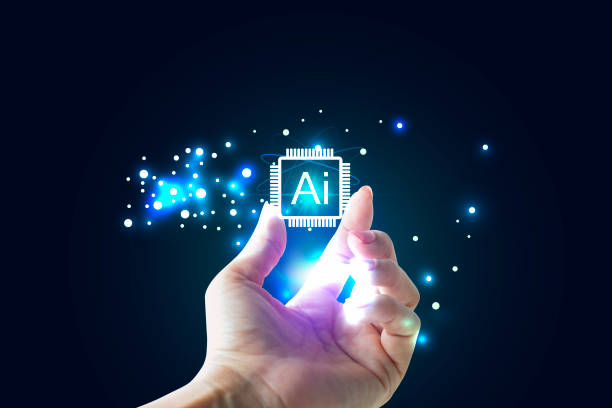
Does AI merely destroy jobs, or does it lead to their transformation and evolution? This intriguing question is explored in this analytical section.
Instead of completely eliminating jobs, AI often causes a #WorkNatureTransformation.
Many repetitive and time-consuming tasks in traditional jobs, such as data entry, document processing, and even some aspects of customer service, can be automated by AI.
This allows human employees to focus on more complex, creative, and human-interactive tasks.
| Traditional Job | AI’s Role | Evolved Human Role |
|---|---|---|
| Accountant | Automating data entry and invoice reconciliation | Strategic financial consulting and complex analysis |
| Factory Worker | Automating production lines and quality control | System supervision, maintenance, and planning |
| Doctor | Assisting diagnosis by analyzing medical data | Patient interaction, clinical judgment, treatment management |
For example, a #Doctor might use AI systems to analyze medical images faster or suggest treatment options, but the final decision and empathetic patient interaction still remain with humans.
This human-AI collaboration is key to AI’s job future.
Jobs requiring strong communication skills, creativity, strategic thinking, and the ability to handle complex and unpredictable situations are less negatively affected and even enhanced.
Therefore, the main challenge is not whether AI replaces humans, but rather how humans can collaborate with AI to increase productivity and create new values.
Strategies for Governments and Organizations to Align with AI Employment Transformations

To successfully manage the consequences of AI’s job future, governments and organizations must adopt comprehensive strategies.
This explanatory section examines the #GovernmentRole and #Companies’ role in this transition.
Governments can play a significant role by investing in digital infrastructure, developing #NationalReskilling programs, and providing financial incentives for businesses that integrate AI into their operations.
Additionally, establishing laws and regulations to ensure the ethical and responsible use of AI and to protect the rights of workers affected by automation is essential.
On the other hand, companies must foster a culture of continuous learning within their organizations.
This includes offering internal training, creating career paths for working with AI, and encouraging employees to acquire new skills.
Investment in AI technologies must be accompanied by investment in human capital.
Companies that view their employees as strategic partners in this transformation will not only reduce resistance to change but can also leverage AI’s full potential for innovation and growth.
Collaboration between government, the private sector, and educational institutions is also crucial for creating a supportive ecosystem that helps individuals succeed during this job transition.
These multifaceted strategies are key to achieving a sustainable and equitable AI job future.
Is your online sales not as expected? With Rasawweb, solve the problem of low sales and poor user experience forever!
✅ Increase visitor to customer conversion rate
✅ Create an enjoyable user experience and increase customer trust
⚡ Act now to get a free consultation!
Global Outlook on AI’s Job Future
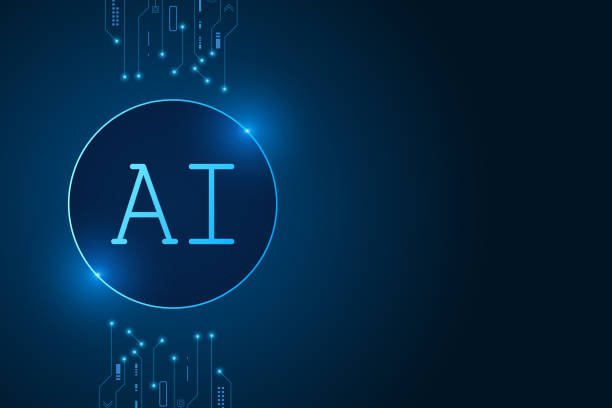
AI’s impact on the labor market is not merely a domestic phenomenon; it has #GlobalDimensions.
This entertaining, yet analytical, section examines the #GlobalOutlook and regional differences in AI’s job future.
While developed countries may see faster job displacement, they also have more opportunities to create new jobs in the AI sector.
Developing countries also face unique challenges and opportunities; on one hand, they can leverage AI to increase productivity and competitiveness in the global economy, but on the other hand, they may face a shortage of skilled labor in this field and the need for extensive investment in education.
Some regions such as #SiliconValley in the USA, #Shenzhen in China, and #Bengaluru (or Bangalore) in India, have become AI hubs and continuously attract talent in this field.
This global competition for specialized AI professionals indicates that countries must develop their national strategies for training and retaining these talents.
Can we imagine that in the near future, geographical borders regarding the employment of AI specialists will become less distinct? This outlook promises the globalization of the labor market and increased competitiveness for high-skilled jobs.
The importance of international cooperation in AI research, development, and education is felt more than ever to address global challenges and seize opportunities.
Conclusion and Final Recommendations for Facing AI’s Job Future
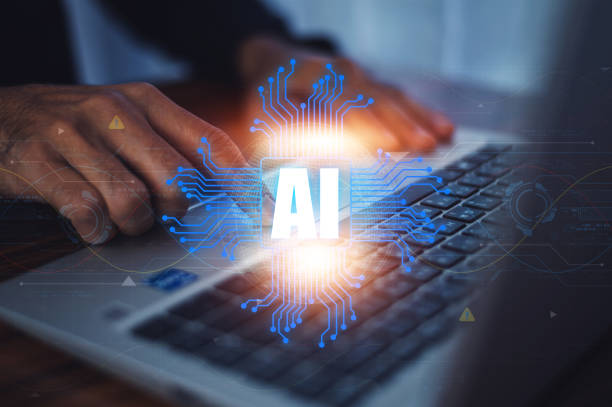
Ultimately, AI’s job future is a complex and evolving landscape that offers both unparalleled opportunities and significant challenges.
This final guide section summarizes the content and provides #PracticalRecommendations for individuals, organizations, and governments.
For individuals, lifelong learning and the development of AI-related skills and human soft skills are key to success.
One should not fear change, but rather see it as an opportunity for personal growth and development.
For organizations, a proactive approach to #WorkforceReskilling and investment in AI technologies and tools that increase productivity is crucial.
Human-AI collaboration should be at the core of workforce strategies.
Governments must also play an active role in creating a supportive environment; this includes developing innovative policies, investing in educational infrastructure, and establishing social safety nets for those who may be adversely affected during this job transition.
In summary, AI is not going to eliminate all jobs, but rather transform them.
With the right approach and sufficient preparedness, we can leverage this transformation to create a better and more productive AI job future for everyone.
Frequently Asked Questions
| Question | Answer |
|---|---|
| What impact will AI have on the future job market? | AI will automate repetitive jobs, but at the same time, it will create new and more complex jobs in areas such as the development, maintenance, and training of AI systems. |
| Which jobs are most at risk of being replaced by AI? | Jobs involving repetitive, rule-based tasks with low need for creativity or emotional intelligence, such as some manufacturing, data entry, and simple customer service jobs, are most at risk. |
| What skills are essential for success in an AI-present job future? | Skills such as critical thinking, complex problem-solving, creativity, emotional intelligence, data literacy, the ability to work with AI, and lifelong learning are of high importance. |
| Will AI cause widespread unemployment? | Some jobs will be eliminated, but history shows that new technologies, instead of widespread unemployment, cause the labor market to transform and create new jobs. Adaptation and retraining are crucial. |
| What new job opportunities emerge with the rise of AI? | Jobs such as Machine Learning Engineer, Data Scientist, AI Ethicist, Human-AI Interaction Designer, and Digital Transformation Consultant are among the new opportunities. |
| What is the role of education in preparing for an AI-driven job future? | Education must focus on developing soft skills, computational thinking, digital literacy, and the ability to learn continuously to prepare individuals for future changes. |
| How can I prepare myself for labor market changes caused by AI? | You can prepare yourself by learning new AI- and data-related skills, strengthening soft skills, developing critical and creative thinking, and getting into the habit of lifelong learning. |
| Will AI ethics become an important career field? | Yes, given increasing concerns about biases, privacy, and automated decision-making by AI, the role of AI ethics specialists will become crucial to ensure its responsible development. |
| How important is human-AI collaboration in the future of jobs? | Human-AI collaboration, rather than competition, will shape the future of the job market. AI can be a tool to increase productivity and allow humans to focus on more complex and creative tasks. |
| Which industries will be most affected by AI? | Almost all industries will be affected, but sectors such as healthcare, finance, transportation, manufacturing, education, and customer service are pioneers in adopting and transforming through AI. |
And other advertising agency services from Rasawweb
Smart Link Building: Professional optimization for customer attraction using attractive UI design.
Smart Digital Advertising: An innovative service for increasing customer attraction through attractive UI design.
Smart Social Media: A combination of creativity and technology for online growth using real data.
Smart Customer Journey Map: Professional optimization for customer attraction using key page optimization.
Smart UI/UX: A specialized service for increasing sales based on the use of real data.
And over hundreds of other services in the field of internet advertising, advertising consultation, and organizational solutions
Internet Advertising | Advertising Strategy | Advertorials
Sources
The Future of AI Jobs on DigiatoThe Impact of AI on Employment on IRNAAI Job Outlook on ISNAJob Transformation with AI on Zoomit
? Rasawweb Afarin, your strategic partner in the digital world. From search engine optimization to multilingual website design and content marketing, we ensure your business’s growth and visibility.
📍 Tehran, Mirdamad Street, next to Bank Markazi, Kazerun Jonoubi Alley, Ramin Alley, No. 6

